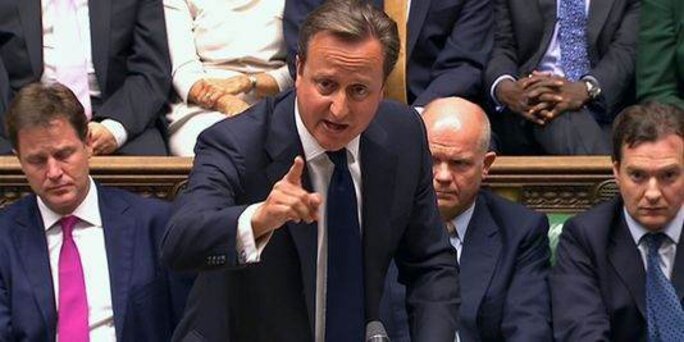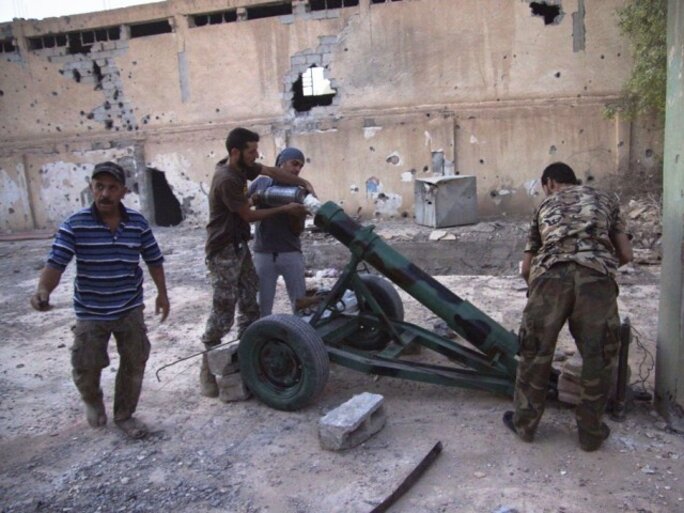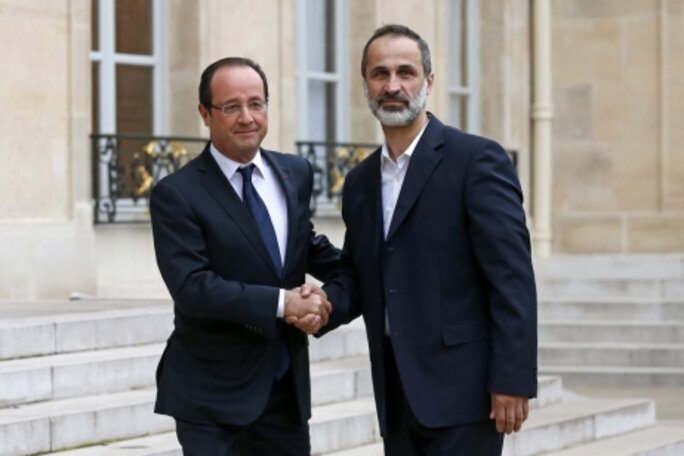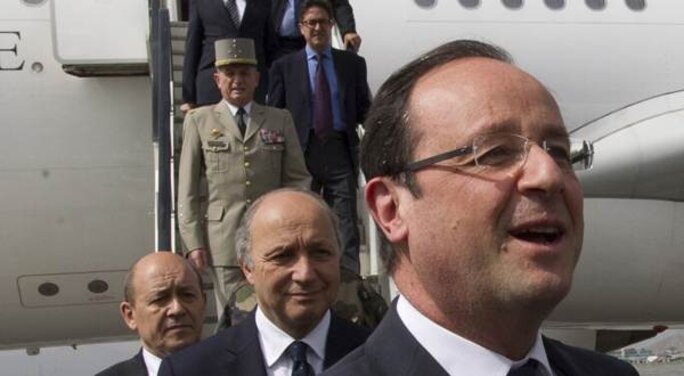It was for the second time in less than a year, and in identical circumstances, that President François Hollande last week announced, before an audience of French ambassadors gathered in the sumptuous surrounds of the entertainment salon of the Elysée Palace, of his decision, as head of France’s armed forces, to engage France in military action abroad.
The first occasion was in January when, before an assembly of diplomats at the Elysée, he announced France was to lead a military offensive against Islamist forces which by then had overrun vast swathes of northern Mali, and which were then poised to move south to take over the capital Bamako. On August 27th, the French president told the diplomats that “France is ready to punish those who took the vile decision to gas innocent people” by joining in US-led strikes against the regime of Bashar al-Assad in Syria.
But the similarities stop there. In Mali, France was in control of the military operation which was solicited by the then Malian president and backed by resolutions voted through the United Nations Security Council. It had the support, albeit tacit, of the European Union and the approval of most French political parties. Concerning Syria, the context could hardly be more different. Trapped by his own active championing for action against the Syrian regime, Hollande’s position now appears weakened before both public opinion at home and also the international community. Even Members of Parliament of his own Socialist Party have voiced reticence in supporting a strike against Damascus, and several have joined opposition conservative MPs in calling for a formal vote in parliament before any action is launched.
Under the French constitution, parliamentary approval of military action is not required, and there was no vote in conclusion to yesterday’s heated debate on France’s participation in action against Syria held in the lower house, the National Assembly.
Last week, the presidential office and the foreign affairs and defence ministries were actively preparing public opinion for what then appeared an imminent decision to go to war. But US President Barack Obama’s decision to ask for approval from Congress before taking any action, a move that surprised even his own advisors, cut the ground from under their feet. Worse still, apart from US Secretary of State John Kerry’s plaudit that France was “our oldest ally”, France has been largely left out of the debate on the issue in the US. Following the refusal of the British parliament to engage in military strikes against Syria, Hollande has been further exposed to criticism that he is acting like a new poodle for Washington.
That criticism is strongly resented by senior officials in Paris who argue that France has been the most supportive of the rebellion against the al-Assad regime since it began in earnest in March 2011. “France is the country that is in the lead in its support of opposition to Bachar [al-Assad]”, commented foreign affairs minister Laurent Fabius in August 2012.
Ever since he was appointed foreign minister in May 2012, following François Hollande’s election, Fabius has followed the same policy line established by his conservative predecessor, Alain Juppé. A former prime minister as is also Fabius, Juppé had himself replaced Michèle Alliot-Marie after she caused outrage by her official and personal support of Arab dictatorships during the uprisings against them that began in Tunisia in early 2011. Juppé was swift to publicly condemn the practices of the al-Assad regime, accusing it of “crimes against humanity”, while calling for sanctions against Damascus, denouncing the “unacceptable silence” of the UN Security Council and, last April, calling for military action. For the then conservative government, under president Nicolas Sarkozy, it was a notable turnaround after it had rolled out the red carpet for Bashar al-Assad during the dictator’s state visit to Paris in 2008.

In November 2012, six months after Laurent Fabius was appointed foreign minister, France became the first country to recognise the National Coalition for Syrian Revolutionary and Opposition Forces – representing several parties fighting against the al-Assad regime – as “the only legitimate representative of the Syrian people”. France has regularly supported meeting of The Friends of Syria Group and it was the first country to claim to have proof that the al-Assad regime had perpetrated chemical weapons attacks on its own people. For months, France has joined with British Prime Minister David Cameron, who also adopted a high profile support of the rebellion, in calling for the arming by Western countries of the rebel forces.
Against such a background, it appears surprising that Hollande could be accused of being a follower of the US and bereft of clear strategy. Yet that criticism is shared by certain French diplomats, military figures and even ranking socialists who spoke to Mediapart on condition of anonymity. The situation is all the more paradoxical given the high number of France-based experts on Syria, a former French colony, including academics like Jean-Pierre Filiu, who was involved in lengthy consultations with Hollande’s office during the summer, and from among its diplomatic staff.
According to one government advisor, the fiasco in which Hollande now finds himself is down to “a series of balls-ups”. Paris is still reeling at the defeat of David Cameron in the British parliament, which had been hurriedly convened for a vote in favour of the principle of military intervention against Syria (which in the event it rejected) without a proper sounding out of MPs views on the issue. “For us, it was totally unforeseeable,” commented one French foreign ministry official. “It will be the first time in a century that Great Britain doesn’t take part in a [military] operation. It is a contraction of the United Kingdom never seen before.”
'We haven’t supported the right opposition elements'
The French presidential office was also stunned by President Obama’s decision to demand a vote in Congress, even if Obama appears convinced he will obtain approval for military action and which, if so, will boost the legitimacy of a decision to strike Damascus.
Thye events of the past week have highlighted France’s rank as a middling power, incapable of carrying out action alone against Syria and which, in the eyes of Russian President Vladimir Putin, just doesn’t have the weight to be an equal interlocutor. Rubbing more salt in the wound, it has proved unable to break the recurrent political deadlock over Syria in the European Union.
Hollande has decided to confront this perception of France’s standing. Not only in order to maintain a firm political approach and to defend French interests, but also to please public opinion which he believes is sensitive to France’s relatively weak position on the international scene. The French president sees this collective lack of pride as contributing to a broad pessimism that has opened the path for populist political parties and undermines public confidence in the future which he believes is essential for an economic recovery.
“François Hollande wants to be taking the initiative, and he is today somewhat the victim of his very strong political will regarding international relations, [one] reinforced by his success in Mali,” commented one ranking official of the Socialist Party. Not to mention also his own popularity ratings, which have seen a recent upturn.
Hollande is accused of a lack of strategy over Syria. “In its policy of frontal opposition, France was at the centre of mobilizing The Friends of Syria, it also called on the Syrian National Council [opposition grouping], and subsequently the National Coalition, to be more inclusive, but the logic of our maximalist position would have been to go all the way,” commented one French diplomat earlier this year. “As of the moment you condemn the illegitimacy of the regime and you support the opposition, it would have been logical to arm the rebellion, or at least to explore the way for an international legitimizing of an intervention.

Enlargement : Illustration 3

France failed to provide itself with the means to match its firm condemnation of the Syrian regime, and each new initiative announced was quickly stalled, or even followed by a retreat. During the winter, after having recognised the Syrian National Coalition and inviting its first leader, Sunni cleric Moaz al-Khatib, to the Elysée Palace, Hollande raised the possibility of lending military support to the rebellion. But nothing moved on this until March 13th, when foreign minister Fabius called for an end to the European embargo on arms shipments to Syria.
Amid yet more subsequent inaction in the days that followed, Moaz al-Khatib was to resign from his post as prime minister of the interim opposition Coalition government after a dispute with foreign backers, succeeded by Ghassan Hitto, who Paris viewed as being too close to the Muslim Brotherhood and Qatar.

Hollande last week again called for an arming of the rebels in Syria, in effect conceding the failure of previous solicitations. According to several sources, France has delivered very little combat equipment to the rebels, the aid it has provided being limited to telecommunication systems and the sending of military instructors to training bases in Jordan and Turkey. Held back by EU inaction, Paris has had to ask Qatar and Saudi Arabia to provide munitions.
In 2012, France gave 13 million euros in aid to support relief operations for the Syrian civil population. In June this year, Hollande announced that a further 85 million euros was to be provided – which leading French NGOs involved dismissed as a “false announcement” because the funds had already been committed to by the French development agency, the AFD.
While foreign minister Laurent Fabius followed a regular line of strategy that consisted of helping the Syrian opposition forces to structure themselves administratively and militarily to the point of representing an alternative to the al-Assad regime, the task became an arduous one because of the political infighting between the National Coalition’s different factions. While France succeeded in instigating a broader representation among the Coalition in May, with the inclusion of more liberal and lay political figures, the organization has lost its legitimacy for many of the revolutionary forces involved in the combat.
Several well-informed French sources contacted by Mediapart believe that Paris has relied for too long on networks created by Eric Chevallier, a former French ambassador to Syria and close to Nicolas Sarkozy’s first foreign minister, Bernard Kouchner. “Since the beginning, our strategy has been to support the opposition, but we haven’t supported the right ones,” commented one Syria expert, referring to pro-French and lay Syrian opposition members who, while vehemently opposed to the Muslim Brotherhood, are in his opinion disconnected with the reality on the ground.
“It’s natural that we are attentive to the liberal and lay elements of the opposition so that they have all their rightful place,” responded Eric Chevallier. “But we are also speaking to other groups, like the Muslim Brotherhood who we meet with often, and with all the non-radical elements.” He underlined that France was the first country to recognize Moaz al-Khatib, who represents a moderate Sunni movement in Syria, as an official interlocutor, and that Paris also supports a coalition of doctors, the UOSSM, which belongs to the same movement.
“The support for the Coalition has come at a cost because it prevents France from working directly with the real opposition, whereas French policy was in many respects innovative,” commented one Syria analyst. “Paris did what no-one planned doing: opening up the path for giving direct aid to the local revolutionary councils, to representatives unknown to anyone.” Representatives of the local revolutionary councils were invited by the French foreign ministry for talks in Paris last October.
France has given a large amount of its financial aid to civil committees, networks of Syrian doctors and the National Coalition’s humanitarian branch, the Assistance Coordination Unit, which is led by the Coalition’s vice-president and female secular activist Souheir al-Atassi.
The funnelling of the aid was organised via Paris and Gazientep, a town in south-east Turkey close to the Syrian border. The operations were initiated by Eric Chevallier, whose influence on the Syria dossier under the previous conservative government has remained intact under the current socialist one. “To offer services for the population when their [governing] regime has deprived access to them, and while the Jihadists are taking up position, is one the elements of our strategy to accompany everything that can offer alternatives to a bloodthirsty regime and to the radicals,” explained Chevallier. But the funds employed are limited, and the task is also fraught by the incapacity of the opposition organizations to define a collective political project.
Same objective, different strategies
Other sources close to the facts of the French government’s policy making on Syria believe that Paris underestimated the support available to Bashar al-Assad, both inside Syria and from its historic allies, Russia and Iran. Until last spring, the French government was regulalrly convinced of an imminent collapse of the Damascus regime, only later understanding that the rebel forces were losing ground.
“We underestimated Russia’s actions,” commented one French diplomat. “It was at the beginning of the year that we began to understand that Russian supplies went beyond the [framework of known] signed contracts and that Russia was also involved in training and intelligence.” The French government now believes Russia has delivered massive supplies of weapons, including important shipments last week.

Enlargement : Illustration 5

The mistakes, including analytical errors, have been the subject of many discussions within the French presidential office, some of them lively. There is however no divergence of opinion between the Elysée and the foreign and defence ministries over the need for Bashar al-Assad to be removed from power, for the need to support Arab revolutionary movements and the strategic interest of Syria for France. “Syria is not abroad, it’s within our environment,” said one government advisor, citing its proximity to the Lebanon, the Mediterranean and the potential for regional destabilisation.
But while they all agree on the ultimate objective, the strategy to be employed has at times divided Hollande, his defence and foreign ministers and the French intelligence services. The defence minister Jean-Yves le Drian and the intelligence services believed foreign minister Fabius’s hard line for action against the al-Assad regime, which he has constantly maintained since taking up his post, was too far. “When diplomats get the idea in their head that there must be intervention, they become more gung-ho than the military,” commented one defence ministry advisor.
On several occasions, the presidential office intervened to dampen Fabius’s ardour. The latter carries an unusual degree of weight for a minister, due to his lengthy and high-flying political career. During a meeting in July of Socialist Party members of the lower house’s foreign affairs commission, Fabius’s stance on Syria came under fire for being too much in toe to US and Israeli positions, for having no clear strategy and for his lack of consultation with others.
Fabius’s two ministerial Middle East specialists, his chief-of-staff Denis Pietton and Middle East advisor Christian Nakhlé, have now left the ministry for ambassadorial postings, the first to Brazil and the second to Kuwait. Fabius is criticized, even by his own diplomats, for having placed France on the front line of the foreign offensive against Damascus without having the means alone of settling the Syrian conflict, and for being opposed to any discussions with Iran.
Meanwhile, the inside view from the foreign ministry is that the defence ministry and in particular the intelligence services, the DGSE, have been too cautious in their approach, having long opposed the supply of arms to the rebels. It should be noted that the French and Syrian intelligence services have a long history of cooperation, notably on anti-terrorism issues, and some French diplomats believe the DGSE exaggerated the risk of Islamist radicals in Syria, which is also highlighted in the propaganda of the al-Assad regime.
-------------------------
English version by Graham Tearse


